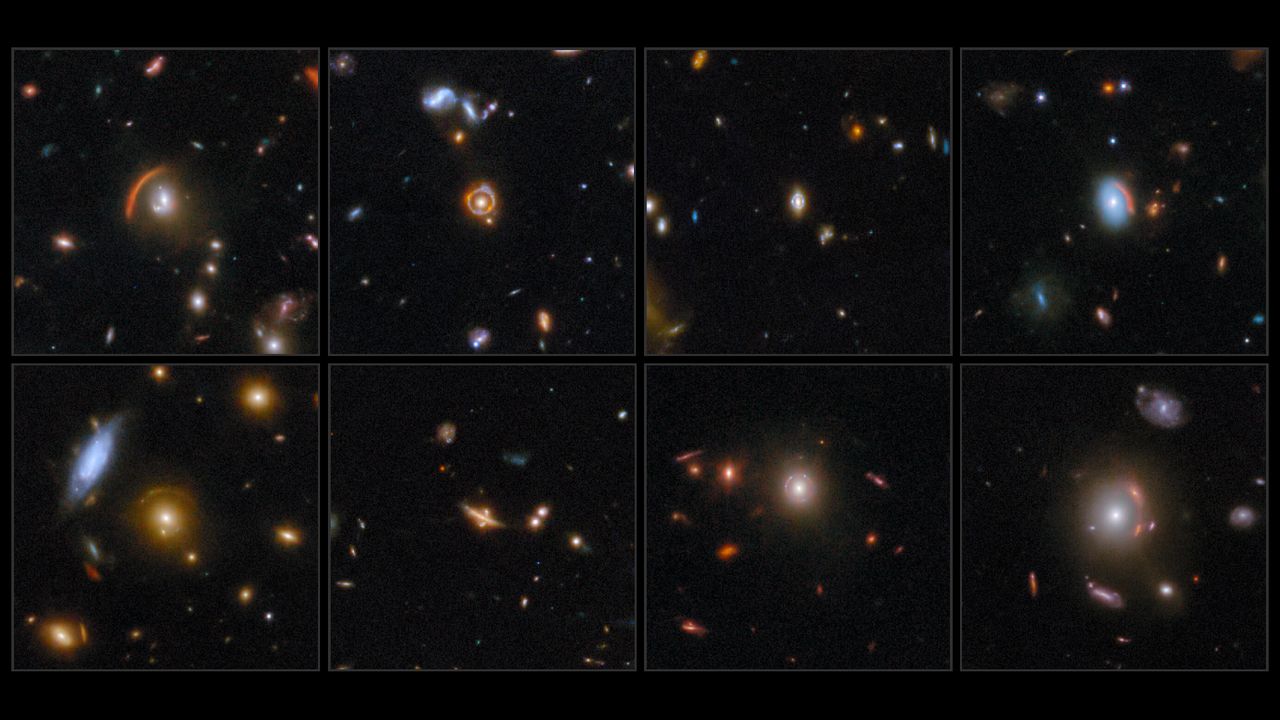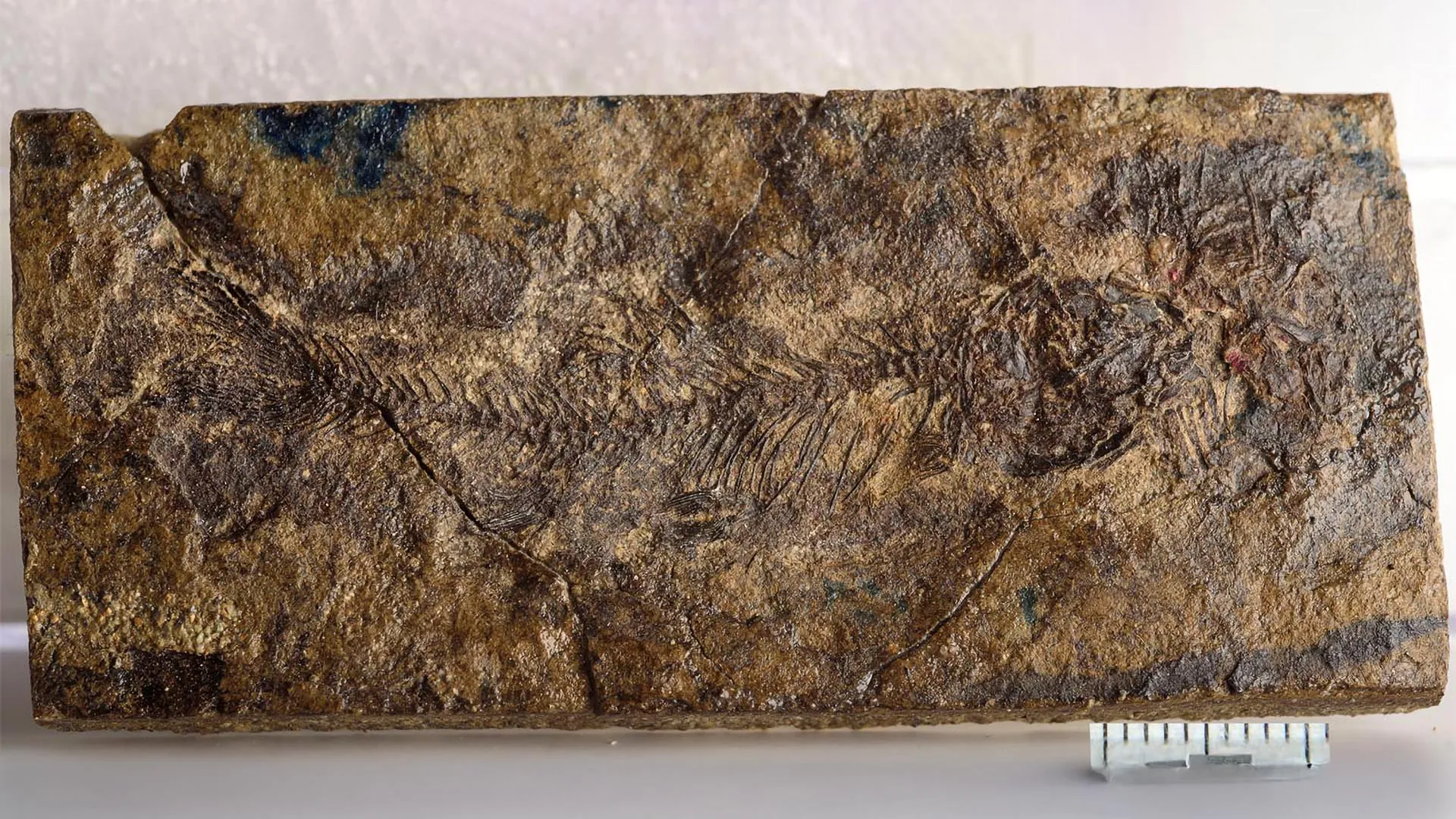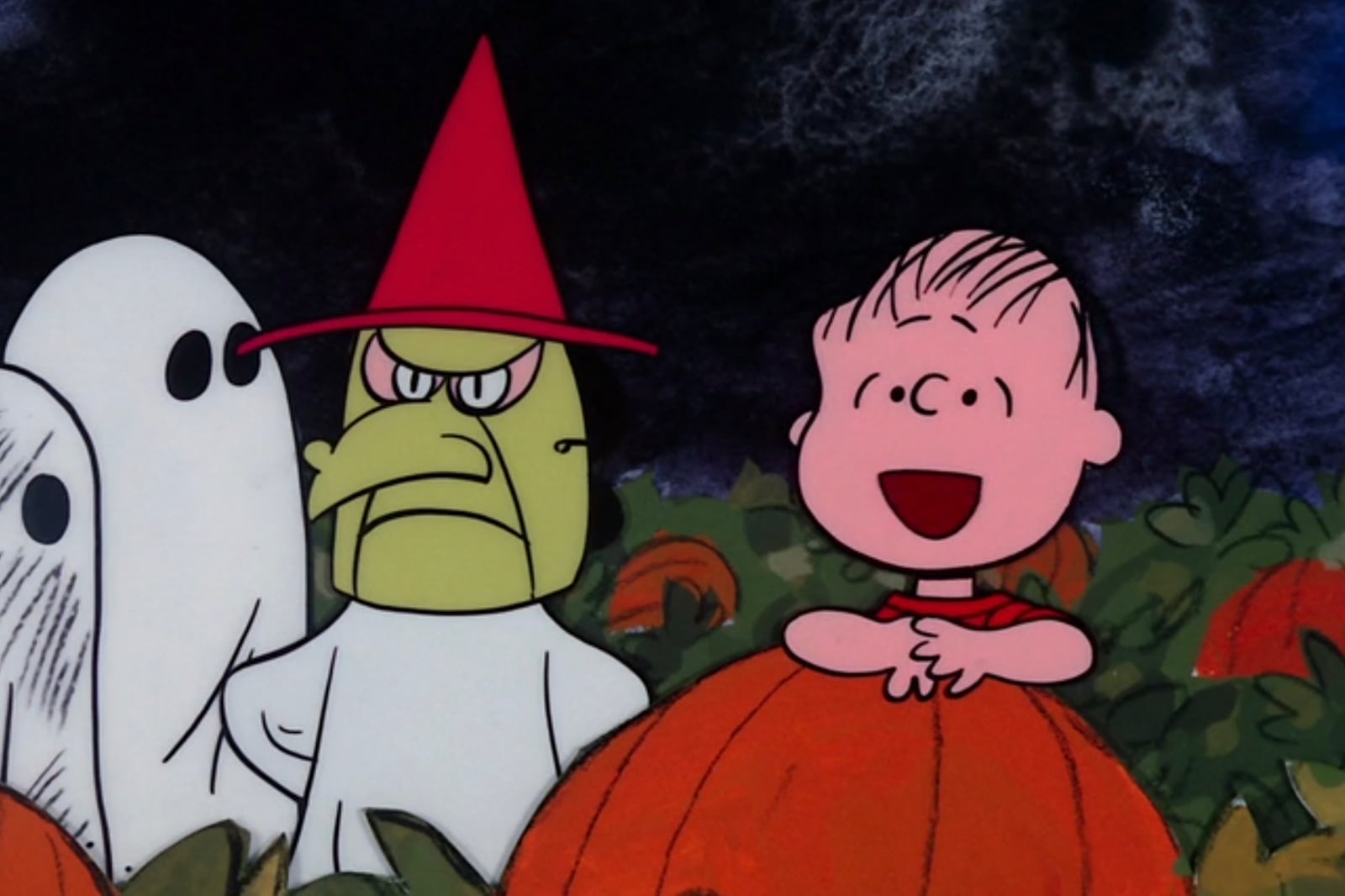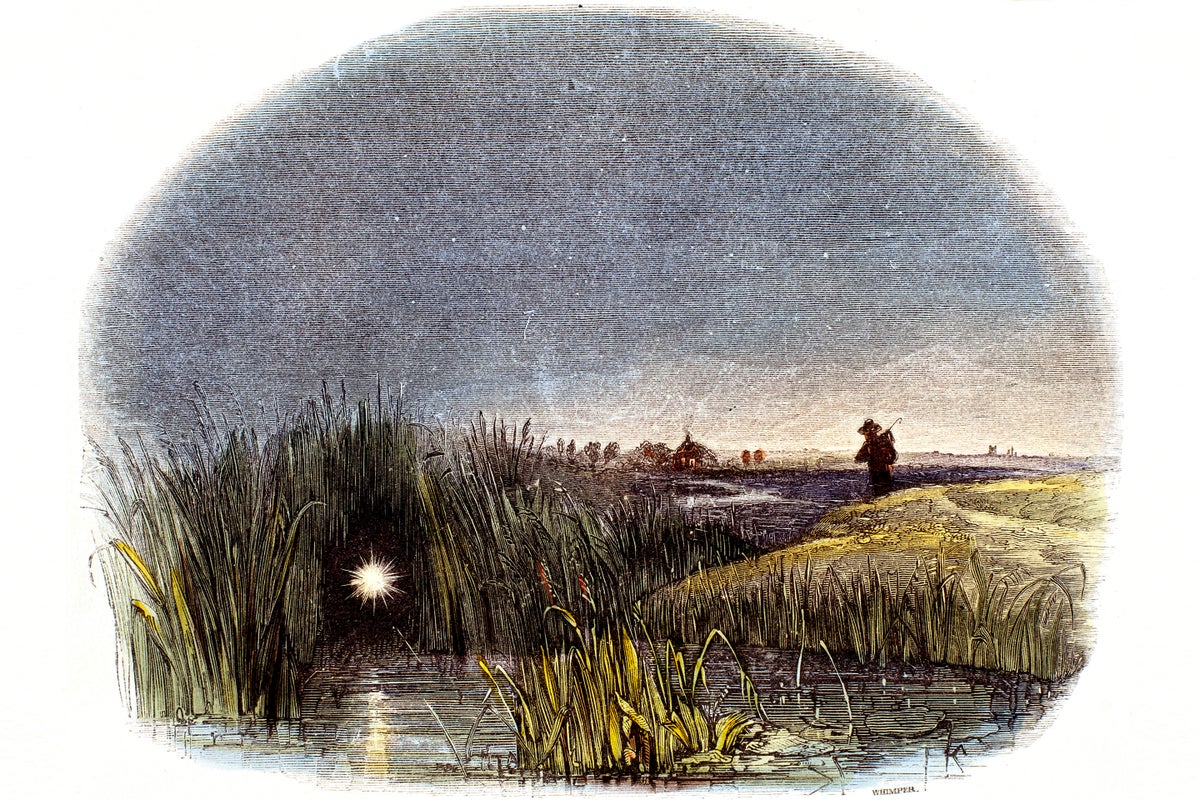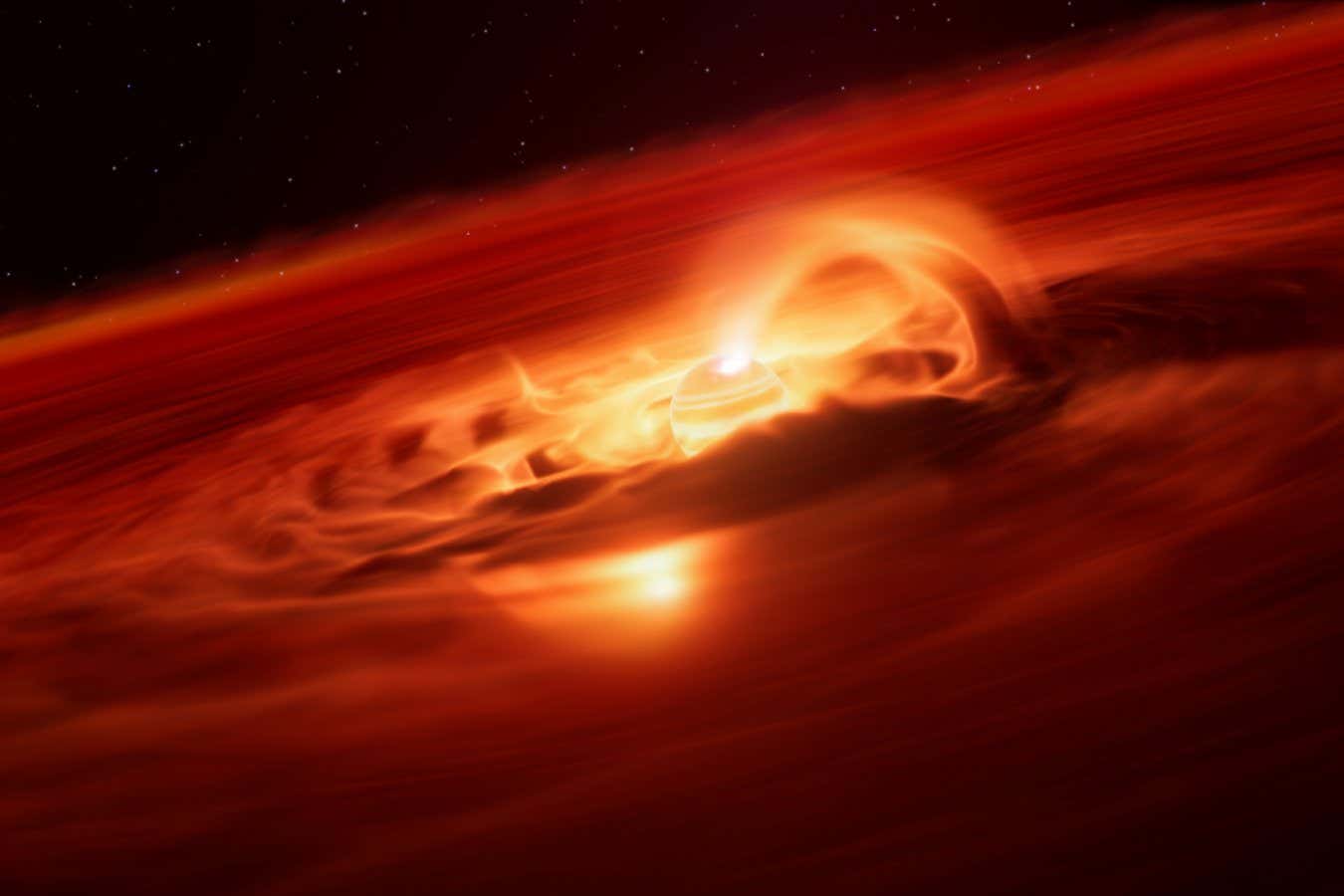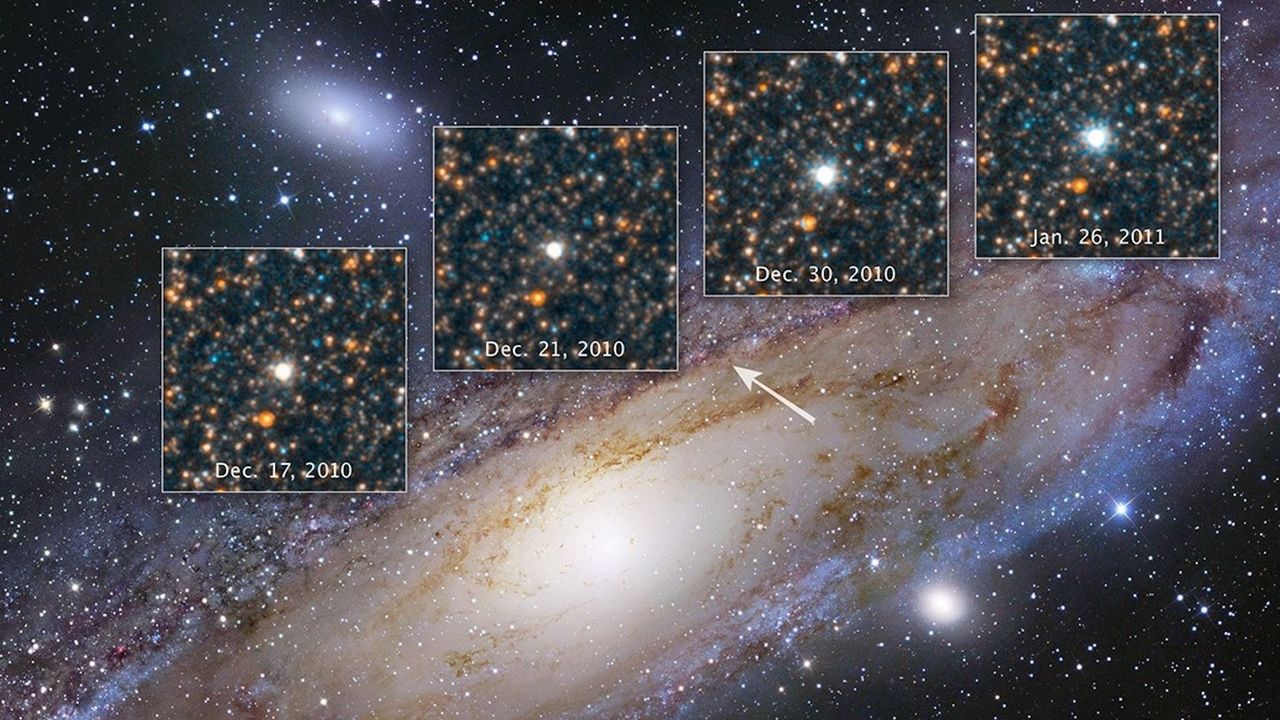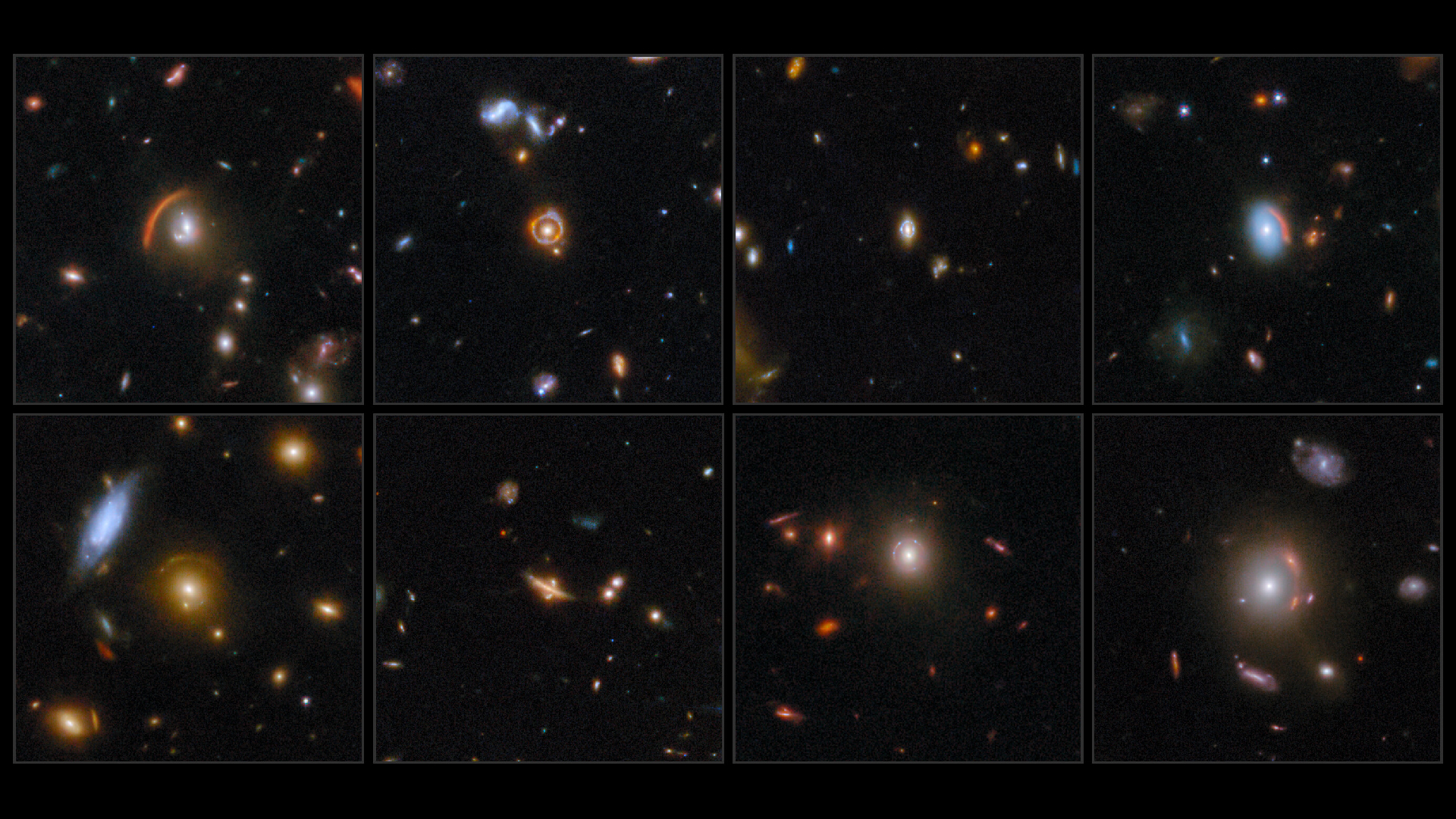 “true”data-original-mos=”https://cdn.mos.cms.futurecdn.net/gTW3c7SuP2QVDs6RRd7HKD.jpg” data-pin-media=”https://cdn.mos.cms.futurecdn.net/gTW3c7SuP2QVDs6RRd7HKD.jpg” data-pin-nopin=”true” fetchpriority=”high”>
“true”data-original-mos=”https://cdn.mos.cms.futurecdn.net/gTW3c7SuP2QVDs6RRd7HKD.jpg” data-pin-media=”https://cdn.mos.cms.futurecdn.net/gTW3c7SuP2QVDs6RRd7HKD.jpg” data-pin-nopin=”true” fetchpriority=”high”>
Quick truths
What it is: 8 “Einstein rings,” formally referred to as gravitational lenses
Where it is: The deep sky
When it was shared: Sept. 30, 2025
As telescopes peer into deep space, they often see peculiarities of nature that amplify distant items. These 8 galaxies just recently imaged by the James Webb Space Telescope (JWST)appear extended, deformed or perhaps bent into ideal circles.Envision area as an elastic material. When an enormous item, such as a galaxy, rests on that material, it flexes the area around it. When light from a more far-off galaxy travels through this distorted area, its course curves. When the positioning is ideal, that background galaxy’s light is misshaped into arcs or rings. The impact can develop a radiant circle of light called an Einstein ringcalled after Albert Einstein, who forecasted this odd phenomenon more than 100 years earlier. Partial arcs and rings are more typical.Gravitational lensing assists astronomers see further and clearer than ever beforeThese lenses amplify and enhance light from extremely far-off galaxies that would otherwise be undetectable. They likewise permit researchers to determine the mass of galaxies, consisting of strange dark matter that can’t be seen straight.
These incredible brand-new deep-field galaxy images originate from a job called COSMOS-Web, among the biggest observing programs performed with JWST. Researchers invested 255 hours pointing the telescope at more than 42,000 galaxies and discovered more than 400 possible examples of Einstein rings. The 8 here are a few of the most remarkable.
Possibly the standout is the 2nd image along the top. It reveals COSJ100024 +015334, a best circle that exposes a galaxy as it existed when deep space was simply a billion years of ages– a portion of its present approximated age (more than 13 billion years of ages).
A few of the galaxies had actually been seen before with the Hubble Space Telescope, however JWST’s sharper infrared vision exposes information that were entirely concealed previously. Others are new discoveries, consisting of galaxies made red by dust and range.
Get the world’s most interesting discoveries provided directly to your inbox.
The unusual positionings that produce Einstein rings enable astronomers to study the foundation of galaxies, star clusters and blowing up stars. These windows into the remote previous expose how galaxies formed and how dark matter formed the universes in its early years.
For more superb area images, take a look at our Area Photo of the Week archives
Jamie Carter is an independent reporter and routine Live Science factor based in Cardiff, U.K. He is the author of A Stargazing Program For Beginners and lectures on astronomy and the natural world. Jamie routinely composes for Space.com, TechRadar.com, Forbes Science, BBC Wildlife publication and Scientific American, and lots of others. He modifies WhenIsTheNextEclipse.com.

AI Content Analysis
This content has been analyzed for AI generation:
- AI Probability: 0%
- Confidence:
- Last Checked: October 6, 2025

